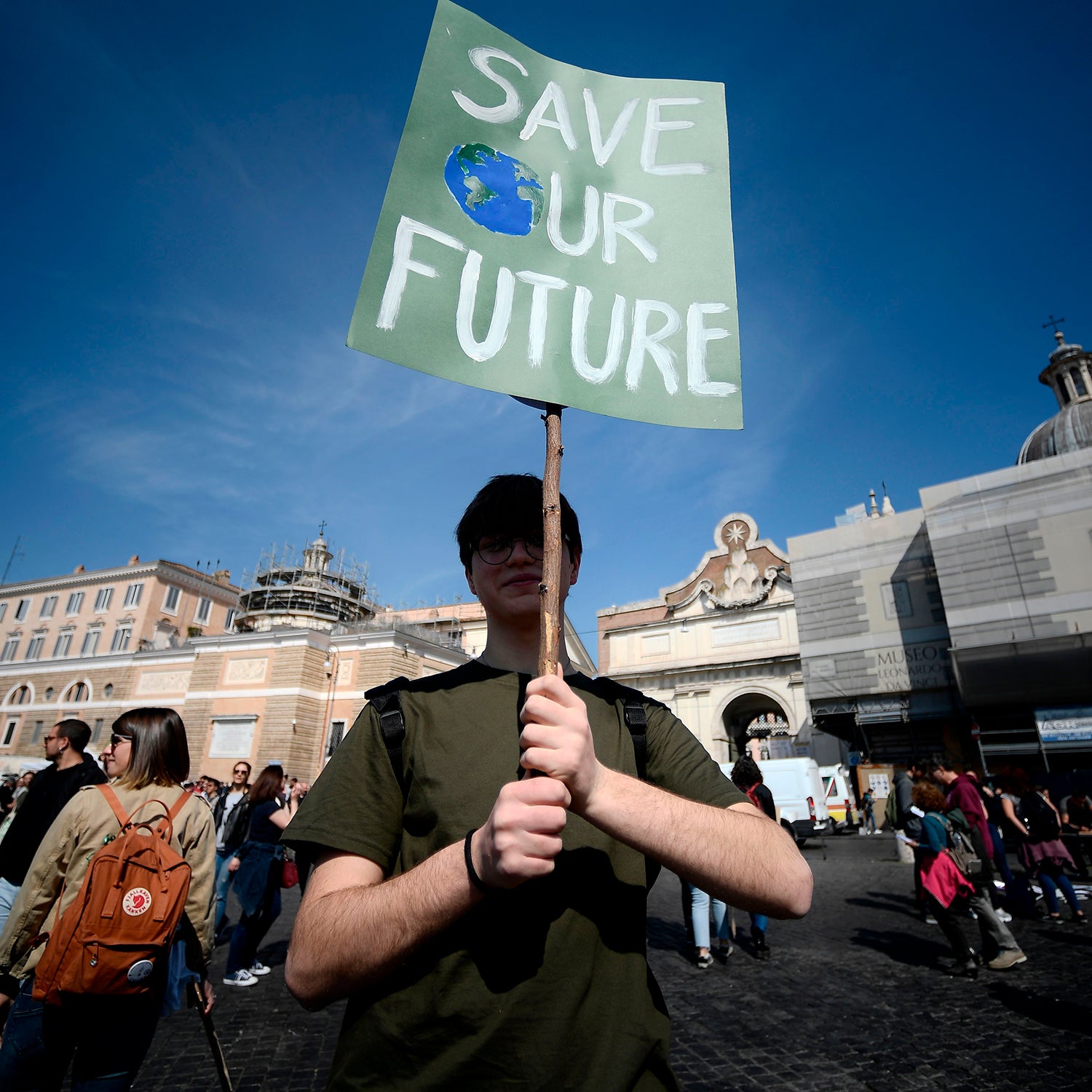So you, along with hundreds of thousands of other Americans and millions across the world, marched in a climate strike last month. Now what? While there’s evidence that the protests have swayed public opinion, they won’t necessarily translate into laws that close public lands to drilling or protect habitat for endangered species. For that, politicians need to feel electoral pressure.
You might be able to exert that pressure sooner than you think. Though the 2020 election is a long way off, this fall three states will vote for governors, four will vote on state legislatures, and countless cities will elect councils and mayors. Those races, say activists, are just as important for climate policy as high-profile national campaigns, and they offer opportunities to harness momentum from the strikes.
Jenny Marienau, campaign manager for 350 Action, the political arm of the climate-action group 350.org, says that it’s common for fossil-fuel companies to invest heavily in local races that rarely get much attention. “We’ve seen in past elections that mayoral seats and public-utility commissions can have huge effects on national infrastructure,” she says. For instance, in Los Angeles earlier this year, a few of those companies spent tens of thousands of dollars to defeat a candidate who wanted to close natural gas plants.
Laura Maunus, policy and legislative coordinator for the Sunrise Movement, a youth-led environmental organization, points to the 2018 New York statehouse elections, when Sunrise helped sweep out a group of center-right Democrats known as the Independent Democratic Caucus. Unseating that group, which had allied with Republicans opposed to environmental legislation, created a majority that prioritized climate action. The new state legislature passed the Climate Leadership and Community Protection Act, which regulates greenhouse-gas emissions and invests in green jobs and underserved communities—what Maunus calls “the most ambitious piece of statewide climate legislation” to date.
“We need bold action at every single level of government,” says Ezra Oliff-Lieberman, an organizer with Sunrise Louisiana. It’s not just that these local races are winnable, he says, but in small elections, it’s possible to make climate change a tangible issue that directly impacts voters. This year he’s excited about “a sleeper race” for the state’s agricultural commissioner. One candidate in that race, Marguerite Green, is fired up about small farms, marijuana reform, and sustainable forestry. “Running locally means that [Green] can’t ignore the way in which climate is connected to every issue,” Oliff-Lieberman says. “You’re not going to win in Louisiana if you just say, ‘Screw oil and gas.’ You win by talking about jobs and food: Green was an agriculture student during Hurricane Katrina and saw the ways that food systems broke down after the storm.” By connecting grocery bills to climate policy, it’s possible that Green will be able to bring attention to the issue in a state that’s both on the front lines of the climate crisis and engulfed by fossil-fuel companies.
Here’s a primer on how to find elections and environmental champions close to home.
Fall 2019
Agricultural commissioner, county executive, the public-utility board—these aren’t exactly big-name races. So where should you go to find information on obscure candidates that might have an impact on the environment? National environmental organizations have local chapters focused on city and state elections and are a starting point for finding local climate candidates and volunteering to knock on doors in those contests.
Last year, Sunrise had 20 local hubs—this year, says Maunus, it has over 300. Such hubs endorse and track candidates who have rejected fossil-fuel funding and committed to environmental policy at any level.
Meanwhile, 350.org’s chapters are directing local campaigns both in elections and against fossil-fuel development. “We want to see candidates committing to stop new fossil-fuel infrastructure. That means ending subsidies, ending new leasing on public lands,” says Marienau.
The Sierra Club, which is also run as a collection of local chapters, is particularly interested in state-legislature races in Virginia and North Carolina this year, where fracked gas pipelines threaten to cut across the Appalachian Trail. There are also crucial races happening in the cities of Aurora, Colorado, and Albuquerque, New Mexico, says a spokesperson, where the group hopes to press for carbon-neutral efforts at the municipal level.
On the Horizon
Although the presidential primary is well underway, politicians are just beginning to declare Senate campaigns for 2020. In Massachusetts, Democratic representative Joe Kennedy is challenging incumbent Senator and Green New Deal sponsor Ed Markey in the primary. (Kennedy has also gone on the record supporting the Green New Deal, but Sunrise and other progressive groups have come out for Markey, pointing toward fossil-fuel holdings in Kennedy’s investment portfolio.)
Focusing its attention on those national-level primaries, 350 Action plans to begin announcing endorsements this month. “In the primaries,” says Marienau, “we have an opportunity to see candidates make clear commitments on their climate priorities that we can hold them to.”
What If I’m Too Young to Vote?
While you have to be 18 to vote in U.S. elections, you can still volunteer for a campaign at just about any age. And in a city-council race, for example, which might attract only a few thousand voters, a couple weekends spent knocking on doors could be critical. According to Marienau, “It’s the small elections that are low-budget and low participation that can really affect what’s permitted in your area.”


